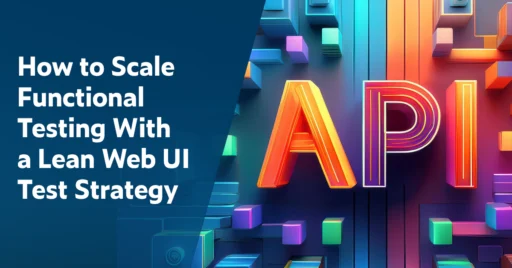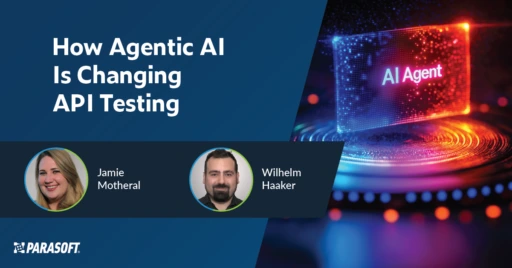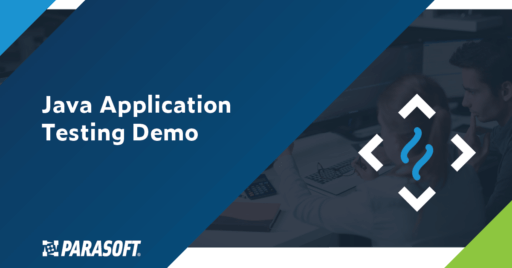Use Agentic AI to generate smarter API tests. In minutes. Learn how >>
Jump to Section
Scaling API Testing With Agentic AI
AI is transforming QA with agentic AI—intelligent agents that autonomously design, execute, and optimize API tests in real time. Dive into this game-changer for teams under pressure to move faster without compromising quality.
Jump to Section
Jump to Section
AI is rapidly redefining software development, from coding to testing to production. What began as innovation is becoming essential to how we build technology.
For QA teams, that transformation is especially impactful. After years of incremental improvements in automation tooling, a new wave of AI innovation is enabling something fundamentally different: intelligent agents that can understand intent, act autonomously, and collaborate with humans to drive results.
This evolution—known as agentic AI—has the potential to dramatically shift how teams approach API testing. Testing teams are no longer limited to rigid, rules-based scripts or one-off AI suggestions. They can now utilize AI agents that actively help design, build, and parameterize scalable test scenarios in real time.
For QA managers under pressure to move faster without compromising quality, this couldn’t come at a better time.
The Scaling Challenge QA Managers Know All Too Well
Even with a wide range of test automation tools available, trying to scale API testing across teams and projects continues to be a major hurdle for QA leaders.
Part of the problem lies in the effort to create robust, reusable tests. While some tools offer recording capabilities or generate basic test-scaffolding, these outputs often need significant manual augmentation. That is, adding assertions, parameterizing inputs, generating test data, and validating complex workflows. Manual testing adds even more overhead, making it difficult to keep pace with development.
At the same time, building high-quality tests often demands deep technical expertise. Not just in the testing tools, but in the applications under test.
This knowledge is frequently siloed in small groups, so when teams try to expand their automation efforts it bottlenecks.
Test data management and parameterization add another layer of complexity. Creating flexible, real-world test scenarios requires testers, developers, and data teams to coordinate. Without streamlined access to relevant data and inputs, these tasks quickly become time-consuming.
Even onboarding new team members is a challenge. Many test automation tools require scripting or intricate configuration knowledge, which slows down ramp-up time and increases dependence on senior team members for day-to-day progress.
In short, traditional test automation still places a heavy burden on time, expertise, and coordination, making it difficult for QA teams to scale effectively.
That’s where agentic AI offers a new path forward.
What Is Agentic AI—and Why Does It Matter in Testing?
Agentic AI represents a significant leap forward in how artificial intelligence can support complex tasks. Unlike traditional AI tools, which are typically designed for isolated, scripted functions, agentic AI is more dynamic. It understands the intent behind tasks, acts autonomously toward specific goals, and adapts to real-time needs.
This is a game-changer in testing, where the demands for efficiency, adaptability, and collaboration are high. Instead of merely executing commands or providing static recommendations, agentic AI functions as a teammate, assisting QA teams in more meaningful ways.
It doesn’t just automate repetitive tasks. It helps testers design and generate parameterized test cases while creating and supplying the needed test data with minimal manual effort.
What Agentic AI Can Do for Your Team
Building on the concept of agentic AI, we now turn to how this innovation specifically benefits QA teams in API testing. Here’s how it can enhance the testing workflow.
Interact in Natural Language With IDE-Embedded Chat
Agentic AI acts like an expert sitting next to you, ready to guide you through whatever testing challenge you’re facing. Need help configuring a test step, applying an assertion, or parameterizing inputs? Just ask in natural language, and the AI will walk you through the process—step by step.
This becomes especially powerful when dealing with unfamiliar or complex scenarios, like building tests for hierarchical EDI messages or orchestrating asynchronous microservices workflows. Even if a tester isn’t familiar with the format or tooling, the AI explains what to do and how to do it—lowering the learning curve and building confidence as you go.
Generate API Test Cases Automatically
Creating test cases typically requires significant upfront effort, especially when it comes to defining test scenarios and handling data variations. Agentic AI allows testers to simply describe what they need—detailing workflows, parameterization, and test data requirements—and it generates the entire test case automatically, saving hours of manual work and ensuring consistency across tests.
Automate Test Parameterization
Testing for different environments, configurations, or data sets can be a tedious, error-prone process. Agentic AI identifies where parameterization is needed, automatically adjusting the test to handle different inputs. This significantly reduces redundancy and increases test coverage, all while requiring minimal input from testers.
Create Tailored Test Data
Test data generation can often be a bottleneck, especially when the data needs to reflect real-world conditions. With agentic AI, testers can define the requirements of the data they need, and the system generates contextually accurate data, tailored to the specific requirements of the test. This shifts teams away from relying on production data—which often requires time-consuming sanitization and provisioning—and instead enables testers to syntactically generate test data as part of the test generation process, accelerating velocity.
Build Complete, Data-Driven Scenarios
Beyond individual tasks, agentic AI can combine test case creation, data generation, and parameterization into complete, ready-to-execute test scenarios. This enables QA teams to build comprehensive, data-driven tests with far less manual intervention, ensuring tests are scalable, reliable, and maintainable as needs evolve.
Agentic AI Is a Force Multiplier
This isn’t just a productivity boost for individual testers—it helps the entire QA team. By embedding intelligent support directly into the workflow, you can overcome traditional bottlenecks, scale your testing practices, and speed up delivery without sacrificing quality.
- Faster onboarding, faster output. New developers and testers can quickly become productive, using natural language and chat interfaces to get guidance and generate tests. That means less downtime ramping up and more hands actively contributing to test coverage.
- Less manual work, more velocity. Time-intensive tasks like writing, parameterizing, and data-driving test cases are automated. This frees up the team to focus on higher-value testing activities—such as strategic test planning and ensuring more robust coverage.
- Smarter, more consistent tests. Agentic AI applies best practices and consistent patterns to every test it generates, helping to reduce human error and validate workflows. While the AI accelerates test creation and supports quality standards, it’s still important for testers to review outputs—agentic systems are powered by LLMs and benefit from human oversight to ensure alignment with project goals.
- Scale without burnout. As demands increase, teams can keep pace without burning out senior engineers or expanding headcount. The time that agentic AI saves QA teams can be refocused to increase test coverage, conduct negative testing, or increase exploratory testing practices.
For QA leaders, the real promise of agentic AI lies in its ability to scale API testing sustainably. Instead of trading speed for quality—or coverage for maintainability—teams can move faster while still upholding testing standards.
This means:
- Testing keeps pace with agile sprints.
- Broader test coverage across service layers.
- Greater consistency across teams and projects.
And it doesn’t require restructuring your team or retraining your workforce—just smarter tooling.
See Agentic AI in Action
With the SOAtest AI Assistant, QA teams have a simpler, less time-consuming gap between testing strategy and test execution. Whether you’re launching an initiative or scaling an existing practice, agentic AI offers the flexibility, autonomy, and intelligence your teams need to thrive.
Check out firsthand how your team would do with agentic AI via the SOAtest AI Assistant. Schedule a demo and our team will create a free customized demo based on your current work process. You can see how agentic AI would help your team automate more, in less time, without sacrificing quality.




